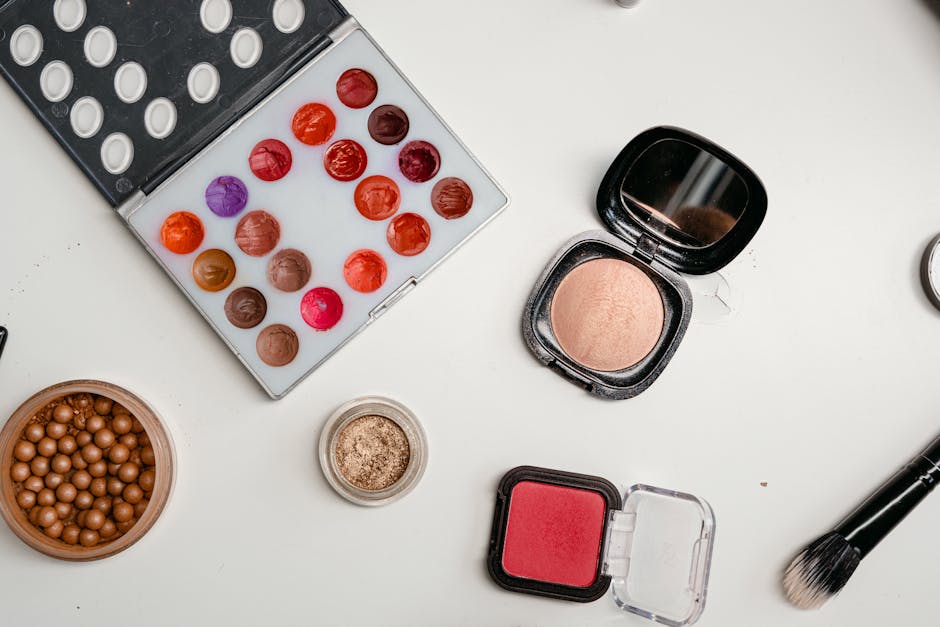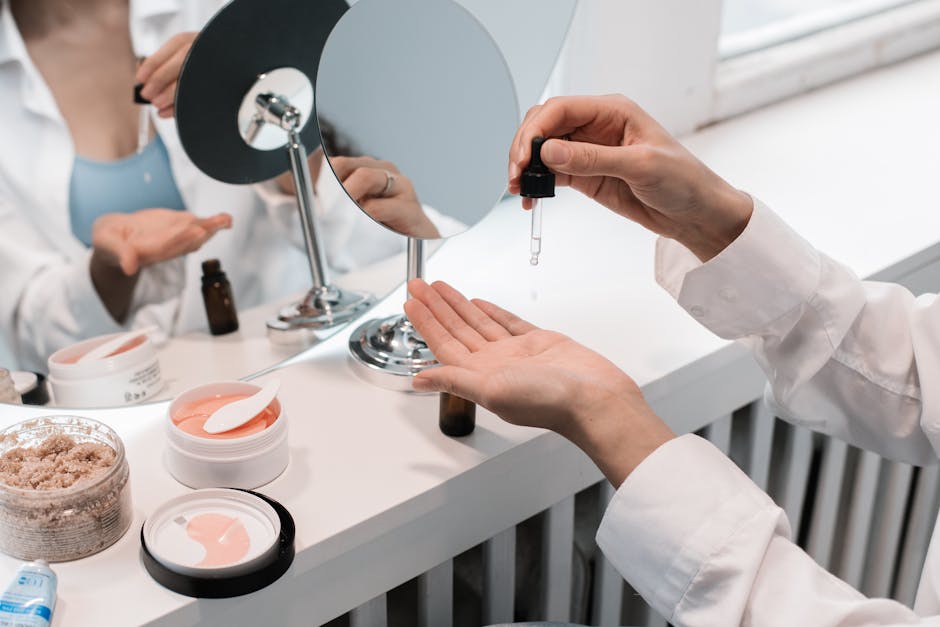Introduction
Biotechnology is an aspect of science that utilizes living organisms or biological systems to create or modify products, especially those aimed at improving our quality of life. One of the industries that has been significantly impacted by this innovative interdisciplinary approach is the beauty industry, an arena traditionally characterized by artificial and synthetic substances.
As you massage your moisturizer into your skin or sweep on your crimson blush, you may not think about how biotechnology is incorporated into your daily beauty routine. However, the blend of biology and technology has been dramatically changing this industry, paving the way for remarkable improvements in the way beauty products are designed, formulated, and tested.
The infusion of biotechnology into the beauty sphere has spurred the development of products that are more effective, personalized, and environmentally friendly. In a day and age where consumers value scientific backing and research-based products, the inclusion of biotechnology is gradually challenging and reshaping our understanding of beauty solutions- from their inception in the lab to their application in our homes.
This bio-revolution in the beauty industry is far from just a trend or fad; it’s the next big leap and this article aims to shine a light on the remarkable crossovers and possibilities that exist when beauty meets biotechnology. Whether you’re a beauty enthusiast or a science geek (or both), sit back as we unpack the fascinating alliances of biotech in the realm of beauty.

The Revolution of Beauty Routines by Biotechnology
Biotechnology, traditionally perceived as an ally of medical science, has swiftly glided into the beauty industry, basking it in a novel glow of innovation. Its fusion into beauty care practices has redesigned conventional beauty routines, yielding a healthier, sustainable alternative to synthetic products. Be it through probiotics enriching skincare or personalized beauty essentials, biotechnology is decisively sketching an audacious trajectory for the industry.
Peeking into skincare, we discover the promising infiltration of biotechnology. Traditionally, skincare was a quiver of chemical-filled arrows aimed at outsmarting your skin issues, closing or opening pores, and forcibly moisturizing the skin. Biotechnology has diverted this trajectory by channeling its prowess into the creation of innovative skincare solutions that naturally cater to our complexion conundrums.
It’s not science fiction – through real-life applications like probiotic skincare and stem cell technology, biotechnology has managed to polarize the ethos of skincare. Probiotic skincare, arguably one of biotechnology’s brighter brainchildren, presents the use of beneficial live bacteria to balance the skin microbiome, while stem cell technology pioneers the use of plant stem cells for harnessing anti-aging properties. These embody the strides made by biotechnology in refurbishing skincare formulae.
These groundbreaking developments have reinforced the relevance of biotechnology in the skincare domain while subtly weaving a prelude to the vast expanse of the beauty industry it’s yet to explore, rightfully earning its place in your beauty cabinet. Whether it’s day-to-day care or specific skin trouble, innovative skincare powered by biotechnology is now at your fingertips, promising personalized, safe, and efficient beauty routines that don’t cost the planet.

Biotechnology in Skincare
The fusion of biotechnology and skincare is reinventing our beauty regimen like never before. Biotech’s influence is enabling innovative skincare solutions that cater to an array of skin issues, including premature aging, hyperpigmentation, acne, and sun damage, fetching excellent results. Its impact on product formulation is allowing us to rethink our skincare arsenal and the routines that we got used to.
There have been remarkable advances in this space, driven primarily by biotechnology. For instance, the advent of probiotic skincare, which bolsters the skin’s natural defenses by bolstering its microbiome—this is an ecosystem of microorganisms that live upon our skin keeping it healthy. Our skin’s health directly correlates with the balance of these organisms, and probiotic skincare helps maintain this balance, ultimately leading to healthier, more radiant skin.
Stem cell technology is another marvel birthed from the womb of biotechnology. Scientists have managed to manipulate plant stem cells to cater to skin needs, providing remarkable hydration, anti-aging and regenerative properties. Through such innovative skincare, dryness, wrinkles and pigmentation may soon be banished to the annals of history.
From harnessing the power of ground-breaking ingredients to creating products that are safer and more effective, biotechnology is infusing innovation into skincare routines with unprecedented intensity. Gone are the days when skincare meant a simple cleanse-tone-moisturize routine. Now, it’s a sophisticated, scientifically-engineered journey focusing on improving the skin’s overall health and appearance. Indeed, the skin we dwell in has never had it so good.

Personalized Beauty Products
In the realm of beauty and self-care, one size no longer fits all. Consumers are now opting for tailored approaches that match their unique skin types, preferences, and lifestyles. Herein lies the beauty of biotechnology – it enables the realization of these unmatched personalized solutions.
Biotechnology yields a wealth of data about individuals and their specific needs, allowing companies to create customized formulations for cosmetics and skincare products. The rising demand for personal care products that cater to unique skin and hair characteristics has driven numerous companies to harness the power of biotechnology.
Take the example of the company “Prose.” They introduced a new paradigm with the promise of hair care products that are tailor-made based on an individual’s hair analysis results. By using biotechnological techniques, Prose can precisely determine your hair’s health status and develop products exactly catering to its needs. The laboratory custom-blends shampoos, conditioners, and treatment plans, exploiting biotechnological knowledge of individual differences.
Another case in point is “SkinCeuticals,” a skincare brand that has tapped into biotechnology’s potential to create the first-ever personalized corrective serum, D.O.S.E. This innovative product is formulated at the point of sale following an in-depth skin diagnosis using state-of-the-art SkinCeuticals technology. This allows the brand to pinpoint and target a customer’s unique skin concerns accurately and treat them with highly precise doses of actives.
By leveraging biotechnology’s capabilities, these companies are ushering in a previously unprecedented level of customization in the market. Personalized beauty products are gradually but steadily shifting from being a novelty to a norm, setting a new standard for the beauty industry and providing users an immersive, tailored experience that extends far beyond off-the-shelf products.

Environmentally Sustainable Beauty Routines
In the tide of modernization and advancements, our planet often rooks the knock-on effects of pollution, particularly plastic waste. Traditional beauty industry contributes its fair share to this challenge, with products packaged in non-biodegradable materials and formulations often ridden with harmful chemicals. Here, we find the true magic of biotech beauty – it’s not just skin-deep, but also environmentally conscious.
Biotechnology introduces a symbiotic blend of science and beauty that also prioritizes our planet’s health. This science-driven approach facilitates the creation of beauty products that are not only effective but also have minimized ecological footprints. For example, biotechnological methodologies allow the development of bio-fermented ingredients, reducing the direct exploitation of nature. Moreover, it empowers the repurposing of waste materials into beneficial beauty components, showing us an innovative way of ‘upcycling’.
In contrast to traditional beauty products, which require extensive natural resources and often involve destructive procurement techniques, biotech beauty products foster sustainability. For instance, instead of extracting squalane from shark livers – a practice that’s disastrous for the marine ecosystem – biotech beauty derives it from sugar cane. Similarly, bioengineered vegan silk replaces conventional animal-based silk, offering a cruelty-free alternative that’s kinder to biodiversity.
Furthermore, biotech beauty commits to eco-friendly packaging design. A move away from plastics and towards recycled or biodegradable packaging is on the rise in this space, limiting the industry’s plastic waste footprint.
Biotechnology, hence, provides a sustainable paradigm shift in beauty routines. The transformation from synthetic chemical-laden beauty products to nature-friendly, science-backed solutions is not just a trend – it’s an environmental necessity. It’s about ‘beautiful you’, but while also caring for a ‘beautiful planet’. Today, we’re making the shift from vanity to responsibility – and biotechnology plays a pivotal role in that shift.

Biotech Beauty
Let’s dive headfirst into understanding ‘biotech beauty’. As the term may clue us in, biotech beauty refers to the intersection of biotechnology and cosmetics, creating game-changing products that take beauty solutions to entirely new levels. It is the science-inspired evolution in the beauty industry, using cutting-edge technological advancements to devise beauty products that evolve with our changing needs.
One of the prominent examples of biotech beauty is the usage of bio-fermentation. Brands are starting to harness the power of bio-fermentation to generate bioactive ingredients. These bioactive ingredients bestow high-grade beauty benefits – think anti-aging effects, hyper-hydration, and dewy glows! Instances are plenty, whether it’s the innovative Olatora’s serums with fermented sea kelp or Youth to the People’s Adaptogen Deep Moisture Cream with fermented reishi – the first reishi mushrooms to gain ECOCERT’s COSMOS natural and organic certification.
Another rather futuristic face of biotech beauty is the prominence of lab-grown ingredients. Take for instance, Geltor, a biodesign company, that utilizes microbial fermentation to cultivate collagen – an important protein abundantly produced in our bodies. Their product, HumaColl21, is an animal-free, lab-grown, human-identical collagen designed for topical skincare.
What’s more, there’s even lab-grown biodegradable silk appearing in beauty products. AMSilk GmbH, a German biotech company produces this silk with the help of bacteria through a fermentation process. This biotech silk powder is then used in cosmetics for substantial advantages such as high moisture binding capacity and an impressive skin feel.
This new breed of beauty solutions, biotech beauty, is thus about working smarter, not harder. These inventions are rooted in the understanding that it’s not merely about what’s in our products, but also about how they’re made. By leaning into the future, biotech beauty is reshaping the path for a healthier, more sustainable, and beauty-fueled world. Hold on tight, because the beauty industry’s biotech ride is just warming up.

The Safety and Efficiency of Biotech Beauty Products
Whenever something new hits the beauty industry, there are always questions about its safety and efficiency. Biotech beauty is no different.
To start with, let’s bust the myth that biotech beauty is unnatural or risky. Often, the term ‘biotech’ can set off alarm bells, making you think of sinister labs and dangerous experiments. But biotechnological processes are not inherently unsafe or genetically manipulative. Instead, they harness natural processes and biological substances. The aim is not to create monstrous, unregulated beauty potions, but to develop products that work in harmony with our own biology.
Now, as for the scientific validation, biotech beauty generally has that in spades. Biotech beauty products have undergone numerous efficacy trials and safety tests as compared to conventional beauty products. What differentiates biotech beauty is that they often use specific and targeted ingredients proven to work at a cellular level. This potentially means that these products may yield better and more reliable results. For example, advances in genetics and molecular biology have given us the ability to create substances like hyaluronic acid synthetically but safely, ensuring your skin remains plump and hydrated.
However, like all products, it’s essential to do a patch test before full application, especially for those with sensitive skin, as individual reactions to products can vary. It’s also recommended to buy products from reputable brands that openly share their founding values, ingredient lists and testing processes. Transparency is key when choosing biotech beauty products.
It’s essential also to remember that just like with traditional beauty products, the ‘miracle in a bottle’ notion still doesn’t apply here. No one product can erase wrinkles overnight or clear acne instantly. Beauty takes time and a proper skincare regimen.
Nonetheless, biotech beauty products open a new avenue for skincare and makeup, marrying essentials of beauty with science’s precision. They potentially offer a safer, more efficient way to take care of your skin—offering targeted solutions that work on a deeper, cellular level. It’s no wonder that they’re causing such a stir in the beauty world.

Conclusion
As we’ve journeyed through the thread of this piece, one truth is irrefutably apparent – biotechnology is not merely knocking on the door of the beauty industry; it’s already crossed the threshold and is now redesigning the house entirely. The revolution afoot is two-pronged – delivering a direct impact on our traditional beauty and personal care routines, while also unfurling a promising aspect of sustainable beauty solutions which the world has come to value.
In skincare, we’ve witnessed biotech’s transformative role – the footprint is all-encompassing, from the creation of innovative skincare treatments to personalized beauty products tailored to the specific needs of individuals. Subsequently, it has influenced environmental sustainability within the sphere, proving it’s not only about creating effective products, but also about leaving less carbon imprints on our planet.
Biotech beauty, as a term and a practice, is set to become a statuette in the hall of the beauty industry. And the beauty of it all? Science and aesthetics go hand in hand. The scientific aura that surrounds these products bestows the credibility of effectiveness, safety, and ingenuity – a true marriage of innovation, pragmatism, and our innate urge for beauty.
Looking ahead, we envision an era where beauty is no longer a blanket solution, but a precise, efficient, and scientifically-based system tailored for you. An era where products aren’t only effective and safe but are also friendly to our mother earth. The intersection of biotechnology and beauty, while not necessarily a path we would have naturally conceived a decade ago, is now a highway leading us to the promising horizons of next-generation beauty.
Ultimately, biotechnology’s involvement is not a question of ‘if’, but ‘how much more’. The pace at which it is being embraced by the beauty industry only signifies that the future is gracefully unfolding before our eyes. Our final thought? Embrace the blend, and be ready to nurture your skin and beauty in ways you never thought possible-with biotech beauty, the future is now.
